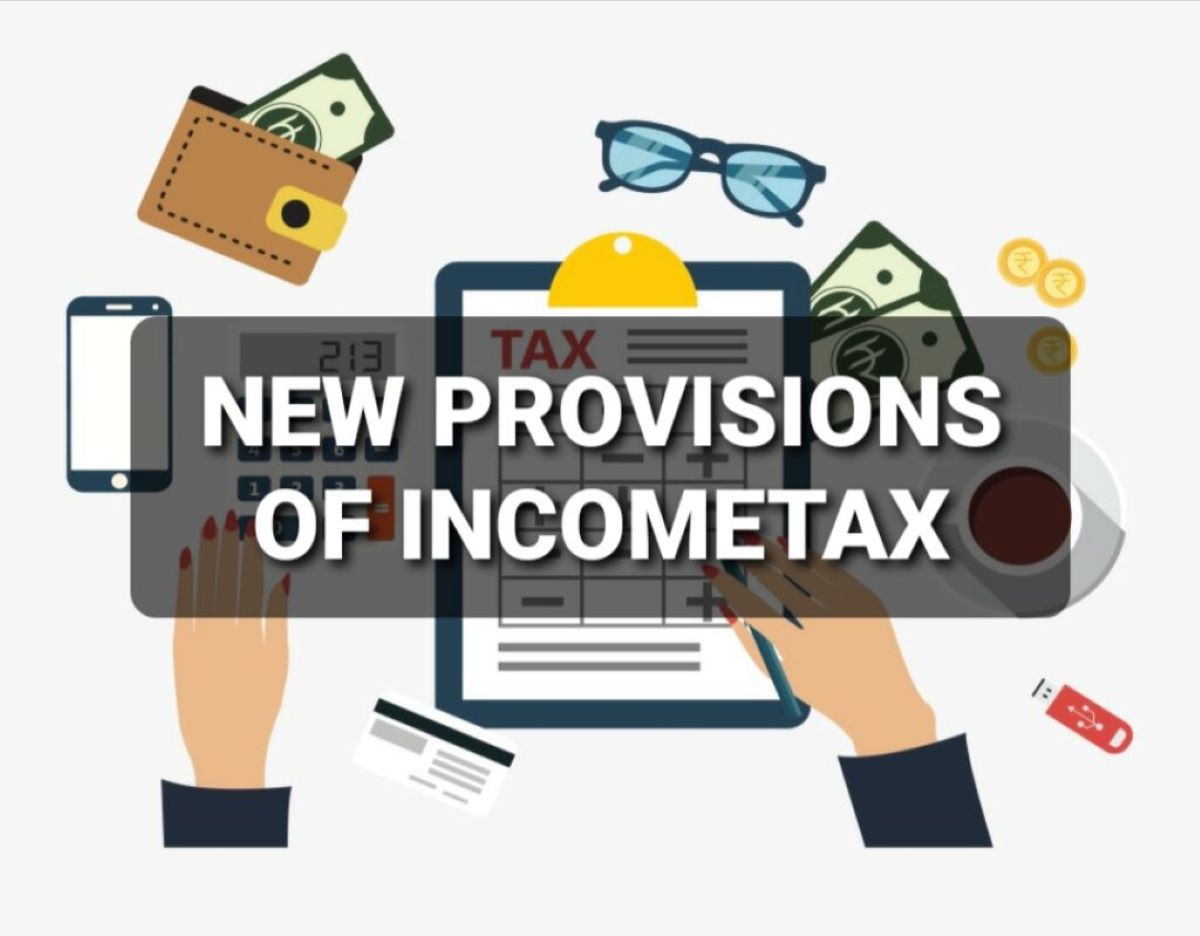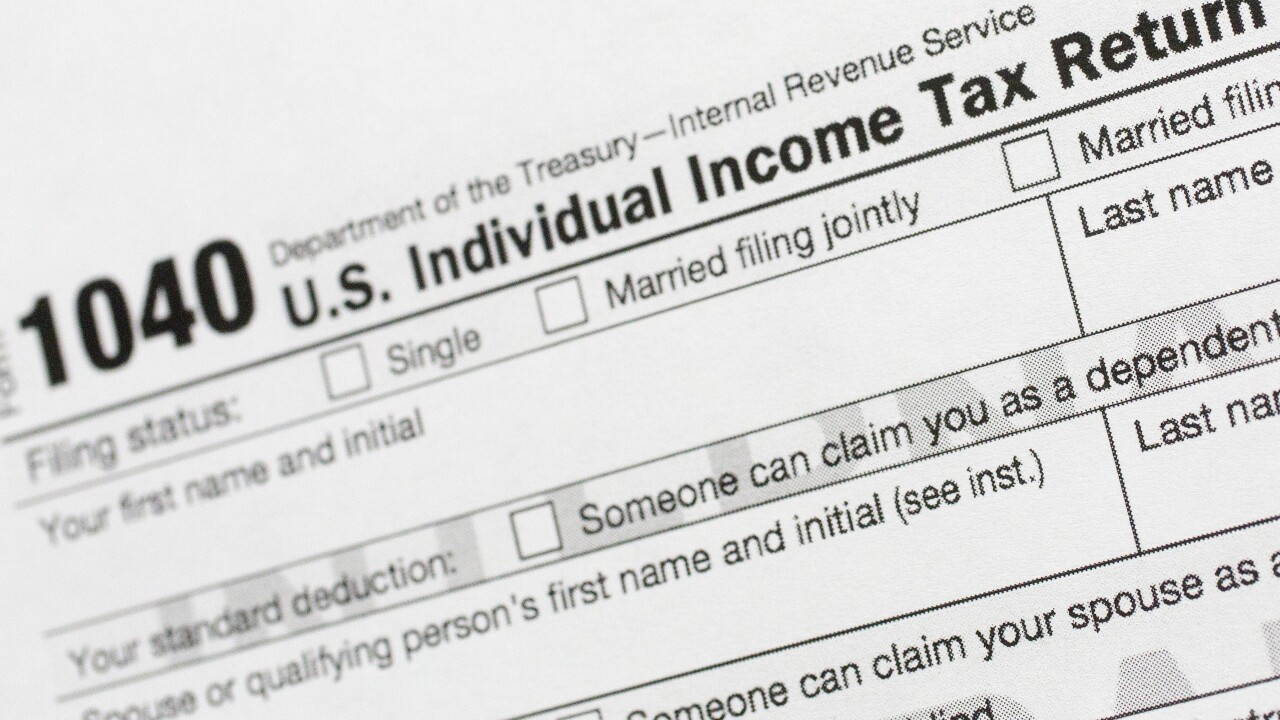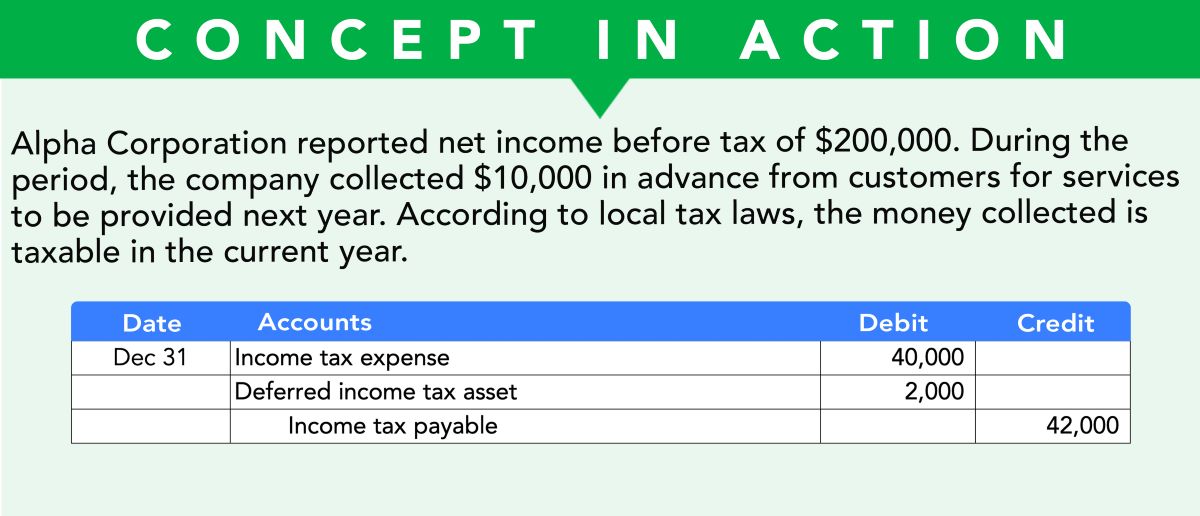

Finance
What Is Income Tax In Maryland
Published: November 2, 2023
Learn about income tax in Maryland and its implications on your finances. Gain insights on how to navigate the tax system and optimize your financial planning.
(Many of the links in this article redirect to a specific reviewed product. Your purchase of these products through affiliate links helps to generate commission for LiveWell, at no extra cost. Learn more)
Table of Contents
Introduction
Welcome to the world of income tax in Maryland! Whether you’re a resident, a business owner, or just curious about how Maryland handles income taxes, you’ve come to the right place. Income tax is a vital component of our financial system, as it helps fund essential government services and programs. Understanding how income tax works in Maryland can empower you to make better financial decisions and ensure compliance with state tax laws.
This article aims to provide you with a comprehensive overview of income tax in Maryland, including the various laws, rates, deductions, and exemptions that apply. We’ll cover everything from taxable income to filing requirements and common questions that taxpayers often have. By the end of this article, you’ll have a solid understanding of how income tax operates in Maryland.
Whether you’re a Maryland resident or thinking about moving to the state, it’s essential to be aware of the income tax laws and regulations in place. Understanding how your income is taxed can help you plan and manage your finances more effectively, ensuring you’re in compliance with the law and maximizing your financial potential.
So, let’s dive into the world of income tax in Maryland and explore everything you need to know to navigate the tax system with confidence.
Brief Overview of Income Tax
Income tax is a tax levied on the income earned by individuals, businesses, and other taxable entities. It is a progressive tax system, meaning that the rate of tax increases with the amount of income earned. The income tax collected by the government is used to finance public goods and services, such as education, infrastructure, healthcare, and public safety.
In Maryland, the income tax system follows a similar structure to the federal income tax system. However, the rates and brackets may differ. It’s important to note that income tax is imposed on both residents and non-residents who earn income within the state.
Individuals are required to report their income on an annual basis and file a tax return with the Maryland Comptroller’s Office. The tax return includes information about the taxpayer’s income, deductions, exemptions, and credits. Based on this information, the Maryland government determines the amount of tax owed or refundable.
For businesses, income tax is based on the net income or profits generated by the business. Different business entities have different tax filing requirements and may be subject to different tax rates.
It’s worth noting that income tax is just one component of the overall tax system. Other types of taxes, such as sales tax, property tax, and payroll tax, also contribute to government revenues.
Now that we have a basic understanding of income tax let’s dive deeper into the specific income tax laws and regulations in Maryland.
Income Tax Laws in Maryland
Maryland’s income tax laws are governed by the Maryland Annotated Code, Tax-General Article. These laws outline the rules and regulations for calculating, reporting, and paying income tax in the state.
One key aspect of Maryland’s income tax system is that it follows a progressive tax structure. This means that individuals with higher incomes are subject to higher tax rates, while individuals with lower incomes pay taxes at a lower rate.
The income tax rates in Maryland are divided into brackets, with each bracket corresponding to a specific range of taxable income. As of the current tax year, the tax brackets for individuals range from 2% to 5.75%. The highest tax rate applies to those with a taxable income of $3 million or more. It’s important to note that these rates and brackets are subject to change, so it’s always wise to consult the most up-to-date information from the Maryland Comptroller’s Office.
Alongside the progressive tax rates, Maryland also offers some deductions, exemptions, and tax credits that can help reduce an individual’s tax liability.
Furthermore, it’s essential to understand the residency rules when it comes to Maryland income tax. Maryland residents are generally subject to tax on all of their income, regardless of where it is earned. Non-residents, on the other hand, are only taxed on income earned in Maryland. It’s crucial to determine your residency status to ensure accurate tax reporting.
For businesses, Maryland follows various tax laws depending on the business entity type. Corporations, partnerships, limited liability companies (LLCs), and sole proprietorships all have different tax filing requirements and may be subject to different tax rates.
It’s important to stay informed about any updates or changes to Maryland’s income tax laws. The Maryland Comptroller’s Office is a valuable resource for accessing the latest information, forms, and publications related to income tax in the state.
Now that we have covered the income tax laws in Maryland let’s move on to understanding what constitutes taxable income in the state.
Taxable Income in Maryland
When it comes to calculating income tax in Maryland, it’s crucial to understand what constitutes taxable income. Taxable income refers to the amount of income that is subject to taxation by the state.
In Maryland, taxable income includes various sources of income, such as wages, salaries, tips, and commissions. It also includes income from self-employment, rental properties, investments, and retirement accounts.
However, there are certain types of income that are exempt from Maryland income tax. These include Social Security benefits, inheritances, gifts, certain retirement income, and certain types of federal and state government pensions.
It’s important to note that deductions and exemptions can further reduce taxable income. Deductions are specific expenses that can be subtracted from the total income, while exemptions provide a set amount of income that is not subject to tax.
Common deductions in Maryland include expenses related to self-employment, business expenses, mortgage interest, medical expenses, and student loan interest. These deductions help lower the taxable income and, in turn, the amount of tax owed.
Additionally, Maryland offers exemptions for certain individuals, such as dependent exemptions and personal exemptions. These exemptions reduce the amount of income subject to tax and can provide significant tax savings.
It’s important to keep accurate records of all income earned and expenses incurred throughout the year to ensure accurate reporting of taxable income. Failing to report all taxable income can result in penalties and interest from the Maryland Comptroller’s Office.
Understanding what constitutes taxable income and taking advantage of deductions and exemptions can help minimize your overall tax liability in Maryland.
Now that we have a clear understanding of taxable income in Maryland let’s explore the tax rates that apply to different income levels in the state.
Maryland Tax Rates
Maryland’s income tax rates are progressive, meaning that the tax rate increases as the taxable income increases. The state uses a tiered tax rate system with different rates assigned to different income brackets.
Currently, Maryland has eight tax brackets for individuals, ranging from 2% to 5.75%. The tax brackets for higher income levels are subject to an additional county tax, which varies depending on the county of residence.
Here are the tax rates for Maryland residents for the current tax year:
- 2% tax rate for taxable income up to $1,000
- 3% tax rate for taxable income between $1,001 and $2,000
- 4% tax rate for taxable income between $2,001 and $3,000
- 4.75% tax rate for taxable income between $3,001 and $150,000
- 5% tax rate for taxable income between $150,001 and $250,000
- 5.25% tax rate for taxable income between $250,001 and $300,000
- 5.5% tax rate for taxable income between $300,001 and $500,000
- 5.75% tax rate for taxable income over $500,000
It’s important to note that these tax rates are subject to change, so it’s always advisable to check the most up-to-date rates from the Maryland Comptroller’s Office.
In addition to the state income tax, Maryland residents may also owe county taxes. County tax rates vary by jurisdiction and are in addition to the state rates. For example, Montgomery County has a county tax rate of 3.2%, while Baltimore County has a county tax rate of 3.2% as well. It’s crucial to be aware of the applicable county tax rate based on your place of residence.
Understanding the tax rates in Maryland can help you estimate your tax liability and plan your finances accordingly. By knowing which income bracket you fall into, you can determine the percentage of your income that will be allocated towards state and county income taxes.
With an understanding of the tax rates, let’s explore the deductions and exemptions available in Maryland that can help reduce your tax burden.
Deductions and Exemptions in Maryland
Maryland offers various deductions and exemptions that can help reduce the overall tax burden for individuals and businesses. These deductions and exemptions provide taxpayers with opportunities to lower their taxable income and potentially receive a higher refund or owe less in taxes.
Some common deductions available in Maryland include:
- Mortgage Interest: Taxpayers can deduct the interest paid on their mortgage for their primary residence and up to one additional property.
- Student Loan Interest: Individuals can deduct up to $2,500 of interest paid on qualifying student loans.
- Self-Employed Expenses: Self-employed individuals can deduct eligible business expenses related to their trade or profession.
- Medical Expenses: Certain unreimbursed medical expenses that exceed a certain threshold can be deducted.
- Charitable Contributions: Donations made to qualified charitable organizations can be deducted, subject to certain limitations.
In addition to deductions, Maryland also offers exemptions that can reduce the amount of income subject to tax. Some of the exemptions available in Maryland include:
- Personal Exemption: Taxpayers can claim a personal exemption for themselves.
- Dependent Exemption: Taxpayers can claim an exemption for each qualifying dependent they have.
- Elderly Individual Exemption: Individuals who are 65 or older may be eligible for an additional exemption.
It’s important to note that some deductions and exemptions may have income limits or phase-out thresholds. Additionally, certain deductions and exemptions may require documentation or proof of eligibility, so it’s essential to keep records and receipts to support your claims.
To take advantage of deductions and exemptions in Maryland, taxpayers must itemize their deductions on their tax return. This involves reporting each qualifying expense and exemption on the appropriate forms and schedules.
It’s worth noting that the recent federal tax law changes may impact deductions and exemptions at the state level. It’s advisable to consult a tax professional or refer to the Maryland Comptroller’s Office for the most up-to-date information on available deductions and exemptions.
Now that we understand deductions and exemptions, let’s explore the tax credits that can further reduce your Maryland income tax liability.
Tax Credits in Maryland
In addition to deductions and exemptions, Maryland offers various tax credits that can further reduce your state income tax liability. Tax credits are especially advantageous, as they directly reduce the amount of tax owed, rather than just reducing the taxable income.
Here are some of the key tax credits available in Maryland:
- Child and Dependent Care Credit: This credit is available for qualified child and dependent care expenses incurred while you work or look for work. The credit can help offset the costs of child care or care for a disabled spouse or dependent.
- Earned Income Tax Credit: Maryland provides a state-level earned income tax credit to low-income individuals and families who also qualify for the federal earned income tax credit. The credit is designed to provide additional assistance to those working and earning low to moderate incomes.
- Education Tax Credits: Maryland offers several tax credits related to education expenses. The most notable is the Student Loan Debt Relief Credit, which provides a tax credit for individuals who have outstanding student loan debt and meet certain eligibility criteria.
- Homestead Tax Credit: This credit is available to homeowners who occupy their principal residence in Maryland. It limits the increase in assessed property value for property tax purposes, resulting in potential tax savings.
- Energy Tax Credits: Maryland offers various tax credits for energy-efficient home improvements and renewable energy systems, such as solar panels or geothermal systems. These credits incentivize homeowners to make environmentally friendly choices while reducing their tax liability.
These are just a few examples of the tax credits available in Maryland. There may be additional credits specific to certain industries, professions, or circumstances. It’s important to research and consult the Maryland Comptroller’s Office or a tax professional to determine which credits you may be eligible for.
When claiming tax credits, it’s important to follow the specific guidelines and requirements outlined by the Maryland Comptroller’s Office. Proper documentation and supporting evidence may be required to substantiate your eligibility for the credit.
By taking advantage of available tax credits, you can significantly reduce your Maryland income tax liability and potentially increase your tax refund. Make sure to explore all the credits for which you may qualify to maximize your overall tax savings.
Now that we understand deductions, exemptions, and tax credits, let’s move on to discussing the filing requirements for Maryland income tax.
Filing Requirements in Maryland
To fulfill your tax obligations in Maryland, it’s important to understand the filing requirements set by the Maryland Comptroller’s Office. These requirements determine who must file an income tax return and when it needs to be submitted.
For individuals, the general rule is that you must file a Maryland income tax return if your total gross income exceeds a certain threshold. The income threshold varies depending on your filing status:
- Single filers: If your gross income is $10,000 or more, you are required to file a Maryland income tax return.
- Married filing jointly, head of household, or qualifying widow(er): If your gross income is $20,000 or more, you must file a Maryland income tax return.
It’s important to note that these income thresholds are subject to change. Additionally, there may be specific circumstances that require individuals with income below the threshold to file a tax return. Examples include individuals claiming certain tax credits or owing non-resident taxes.
For businesses, the filing requirements depend on the business entity type. Corporations, partnerships, limited liability companies (LLCs), and sole proprietorships all have different filing requirements and deadlines.
It’s essential to be aware of the filing deadlines set by the Maryland Comptroller’s Office. Typically, the deadline to file individual income tax returns in Maryland is April 15th, unless that date falls on a weekend or holiday. In such cases, the deadline is extended to the next business day.
If you are unable to file your tax return by the deadline, you can request an extension by submitting Form PV (Application for Extension of Time to File). An extension grants you an additional six months to file your return, but it does not extend the time to pay any tax owed. Interest and penalties may apply if you fail to pay your tax liability by the original due date.
It’s important to accurately report your income, deductions, and credits on your Maryland income tax return. Failing to report income or taking incorrect deductions can result in penalties and interest. It’s advisable to keep detailed records and consult a tax professional if you have any uncertainties or complexities regarding your tax situation.
Now that we have covered the filing requirements, let’s address some commonly asked questions about Maryland income tax.
Commonly Asked Questions about Maryland Income Tax
As you navigate the world of Maryland income tax, you may have some lingering questions. Here are answers to some commonly asked questions to help clarify any uncertainties:
1. What is the difference between Maryland state income tax and federal income tax?
While both Maryland state income tax and federal income tax are based on your income, they are separate entities. Maryland state income tax is specific to residents and individuals who earn income in the state, while federal income tax is collected by the Internal Revenue Service (IRS) and applies to individuals and businesses nationwide.
2. Can I file my Maryland state income tax return electronically?
Yes, Maryland offers the option to file your state income tax return electronically through their online portal. E-filing offers a faster and more convenient way to submit your return and receive any refund owed to you.
3. How long does it typically take to receive a tax refund in Maryland?
Once your tax return has been processed and accepted, it can take up to six weeks to receive your refund. However, if you have chosen to receive your refund via direct deposit, it may arrive even sooner.
4. Am I eligible for Maryland’s earned income tax credit?
Maryland offers a state-level earned income tax credit (EITC) for low-income individuals and families who meet certain criteria. To determine your eligibility and claim the credit, you must file a Maryland income tax return and meet the income requirements.
5. What do I do if I made a mistake on my Maryland state income tax return?
If you realize you made an error on your Maryland state income tax return, you can file an amended return using Form 502X. This form allows you to correct any mistakes or omissions on your original return. It’s important to file the amended return as soon as possible to avoid any penalties or interest on incorrect information.
6. Do I need to include my federal tax return when filing my Maryland state income tax return?
No, you do not need to include a copy of your federal tax return when filing your Maryland state income tax return. However, it’s important to ensure that your income, deductions, and credits on your Maryland return are consistent with the information reported on your federal return.
7. How long should I keep my tax records?
It is generally recommended to keep your tax records for at least three years from the date you filed the original return or the due date of the return, whichever is later. However, certain circumstances may warrant keeping records for a longer period. It’s advisable to consult the IRS guidelines or a tax professional for specific guidance.
8. Do I need to make estimated tax payments in Maryland?
If you anticipate owing $500 or more in Maryland state income tax for the year, you may be required to make estimated tax payments. These payments are typically made quarterly and help you avoid underpayment penalties. Consult the Maryland Comptroller’s Office for more information on estimated tax payment requirements.
These are just a few of the common questions taxpayers have about Maryland state income tax. If you have additional concerns or unique circumstances, it’s recommended to consult the Maryland Comptroller’s Office or seek assistance from a qualified tax professional.
Now, let’s wrap up our discussion on Maryland income tax.
Conclusion
Navigating the world of income tax in Maryland may seem daunting, but with a solid understanding of the laws, rates, deductions, exemptions, and filing requirements, you can confidently manage your tax obligations.
Income tax in Maryland follows a progressive tax structure, meaning that the tax rates increase as the income levels rise. It’s essential to know the tax brackets and rates applicable to your income level to accurately calculate your tax liability.
Understanding what constitutes taxable income and taking advantage of deductions, exemptions, and tax credits can further reduce your overall tax burden. Maryland offers a range of deductions and exemptions for individuals and businesses, as well as various tax credits to help lower your tax liability.
When it comes to filing your Maryland income tax return, it’s crucial to know the filing requirements and deadlines. Filing your return accurately and on time ensures compliance with state tax laws and prevents penalties and interest.
Lastly, if you have any questions or uncertainties about Maryland income tax, it’s always advisable to consult the Maryland Comptroller’s Office or seek guidance from a qualified tax professional.
By understanding and navigating the intricacies of income tax in Maryland, you can effectively manage your finances, maximize your tax savings, and contribute to the funding of essential government services and programs.
Remember, staying informed and proactive in your tax planning can lead to a smoother tax-filing experience and potentially more financial flexibility. So, embrace your knowledge of Maryland income tax and approach tax season with confidence!














